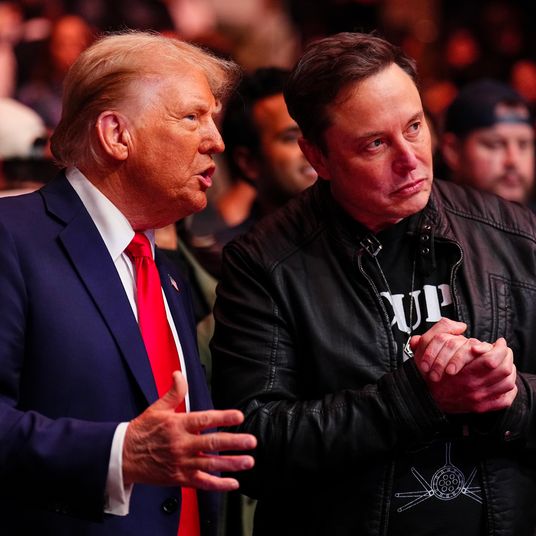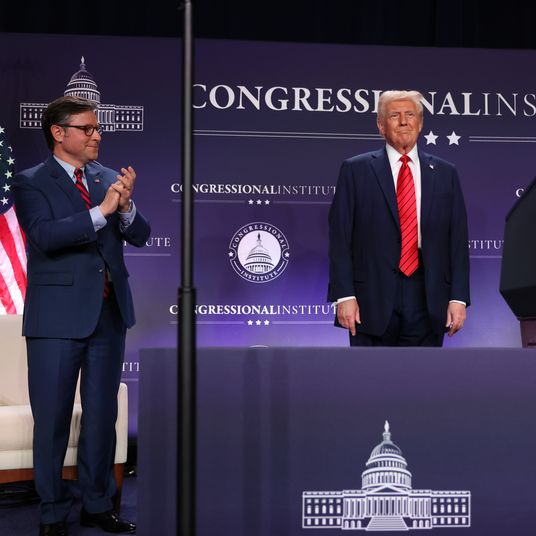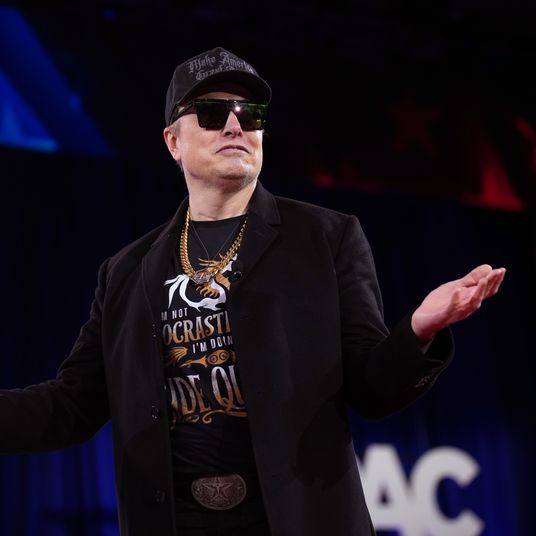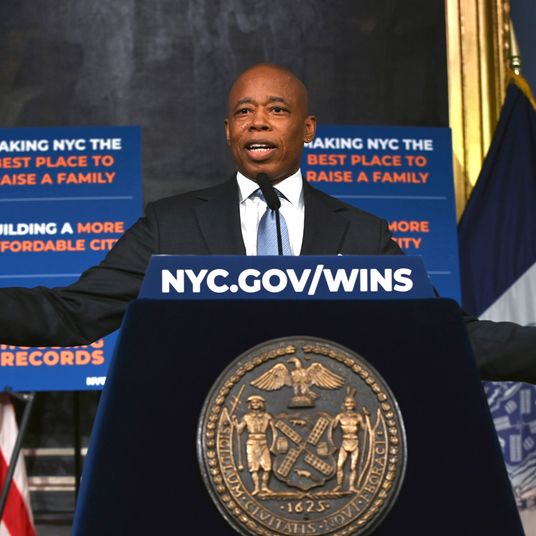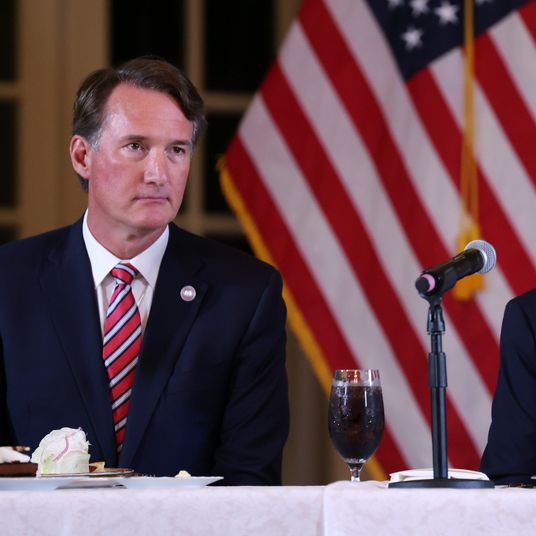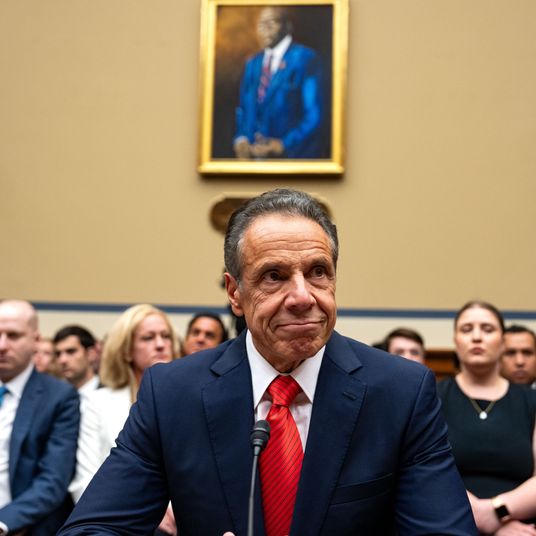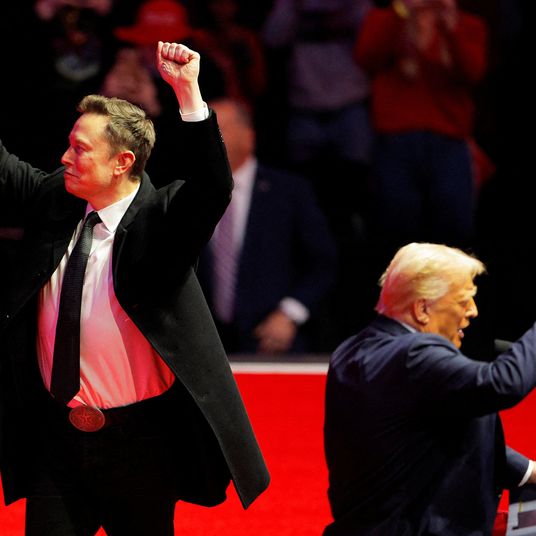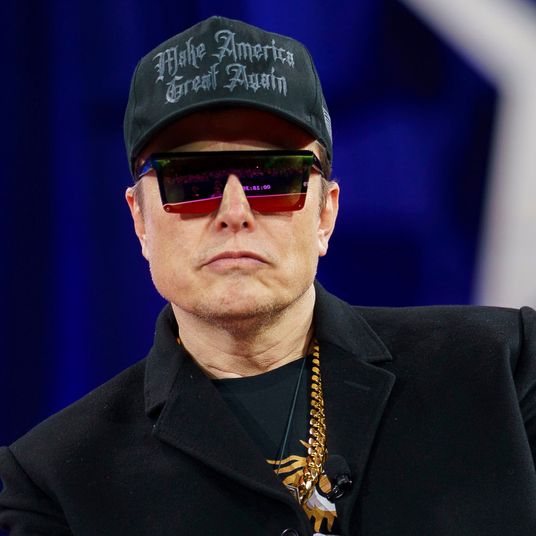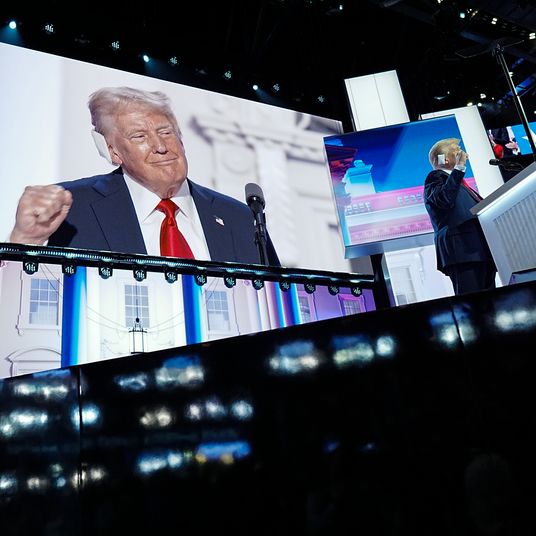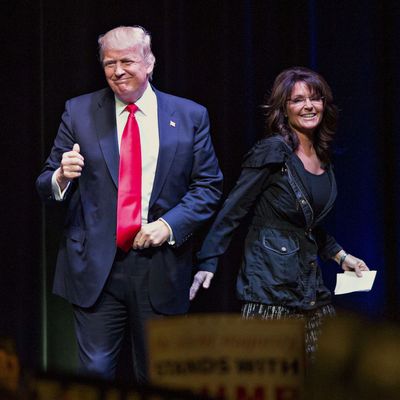
During the Republican presidential primary, the traditional conservative Republican counterattack on Donald Trump defined him as an ideologically alien figure. Trump, conservatives insisted, was a “liberal Republican,” or “sounds like a liberal Democrat,” or was a “rich, New York liberal,” or possibly even a Democratic Party double agent.
This was not merely a matter of campaign messaging. Anti-Trump conservatives genuinely wanted to believe that his authoritarian demagoguery was inimical to standard Republicanism or, at the very least, that the two had little relation to one another. That distinction has grown harder to sustain as Trump has governed as a doctrinaire conservative movement ideologue. But not all anti-Trump conservatives have given it up entirely. Matt Latimer, a former George W. Bush speechwriter, supplies a lurid example of the persistence of the fantasy. In a Politico essay, Latimer suggests that Trump could well have won the presidency running as a Democrat.
It is true that Trump has advocated an incoherent and frequently shifting mix of public positions that, at times, could have identified him in the Democratic Party as comfortably as the Republican Party. Latimer argues that the qualities that failed to disqualify Trump as a Republican nominee would also have failed to disqualify him as a Democratic one. “His comments on women and minorities would have exposed him to withering scrutiny among the left’s army of advocacy groups,” he argues. “Liberal donors would likely have banded together to strangle his candidacy in its cradle — if they weren’t laughing him off. But Republican elites tried both of these strategies in 2015, as well, and it manifestly didn’t work.”
Except the Democratic Party, unlike the Republican Party, is a multiracial coalition. The Democratic Party might not be free of racism, but it has a fairly low tolerance for it. The GOP elite failed to make Trump’s racism a disqualification because it endeared Trump to the most racially resentful portions of the nearly all-white party. Indeed, Trump became a Republican because he identified growing racial resentment as the most powerful impulse in conservative grassroots politics and capitalized on it. Conservative elites failed to counteract his appeal because they had been fooling themselves into believing that tea party protesters cared about balanced budgets and low marginal tax rates.
Latimer likewise argues that Trump’s buffoonish reality-television persona might have played just as well in blue America as red America. “Think the Democrats wouldn’t tolerate misogynist rhetoric and boorish behavior from their leaders?” he writes. “Well, then you’ve forgotten about Woodrow Wilson and John F. Kennedy and LBJ and Bill Clinton.”
It is true that Democrats were willing to accept Bill Clinton’s adultery. (Though they didn’t extend the same forgiveness to John Edwards.) But it is a far cry from the long tradition of male politicians sleeping around to Trump’s gross public misogyny. If Latimer has an example of a modern Democratic politician who won an election after being accused of assault by multiple women and then being recorded boasting of grabbing women by their genitals, it has slipped my mind.
Of course boorishness hardly encompasses Trump’s disqualifying characteristics. Democrats tolerated Clinton’s adultery because he was a competent public servant who could cogently discuss public policy — like Hillary Clinton, Barack Obama, John Kerry, Al Gore, Michael Dukakis, and Walter Mondale. Trump is a flamboyantly ignorant demagogue who delighted Republicans by swatting away all opposition with crude insults that don’t even pretend to address substantive objections.
The closest I can come to imagining a Democratic version of Trump is two recent figures. Alan Grayson, a bloviating populist from Florida, was crushed (by a deeply underwhelming opponent) in a primary last year. In 1998, Geoffrey Fieger, a demagogic trial attorney with a vague resemblance to Bob Odenkirk’s character on Better Call Saul, captured the Democratic nomination for governor of Michigan. Fieger had certain Trumplike qualities. He gobbled up press coverage with a constant stream of attention-grabbing insults. He called the Republican governor “dumber than Dan Quayle and twice as ugly” and “the result of miscegenation between humans and barnyard animals,” and accused him of stealing billions of dollars from the state budget because he failed to grasp basic facts of how the budget works. Fieger embarrassed state Democratic officials, who treated him like a leper, and he wound up pulling less than 38 percent of the vote in a Democratic-leaning state.
Trump is a product of a decades-long evolution in the Republican Party. What Richard Hofstadter accurately diagnosed as the “paranoid style” in American politics — angry, conspiratorial, distrustful of expertise — has over time assumed the dominant place in the GOP. One can draw a straight line from George W. Bush’s good ol’ boy anti-intellectualism to Sarah Palin’s curdled resentment to Trump. Republican leaders tiptoed around birther conspiracy theories because they couldn’t risk alienating the large segment of their base that thrilled to them.
The same process has not taken hold in the Democratic Party. A recent poll finds that 54 percent of Democrats, but only 13 percent of Republicans, have a lot of trust “that what scientists say is accurate and reliable.” That is an indication of two party bases that now have very different relationships with empiricism and expertise. Whatever the shortcomings of the New York Times editorial page, it has no equivalent to The Wall Street Journal editorial page’s lurid trafficking in bizarre accusations of murder against the Clintons during the 1990s.
Trump is an historical outlier. But he is also the product of the political culture of a Republican Party that is fertile soil for his brand of authoritarian ethno-nationalism. The desire to regard him as a fluke who could just as easily have wound up in the other party is the kind of evasion that has prevented many Republican elites from squaring up to the forces that enabled Trump’s rise.









